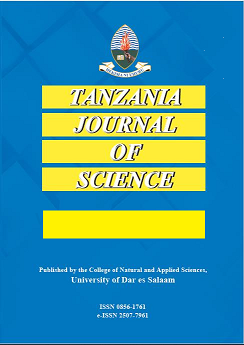Monodisperse Polystyrene Microspheres: Studies on the Effects of Reaction Parameters on Particle Diameter and Colloidal Stability
Keywords:
Monodisperse, Colloidal Stability, Polystyrene Microspheres, Average Particle DiameterAbstract
The synthesis of highly monodisperse polystyrene (PS) microspheres via surfactant-free emulsion polymerization process was successfully carried out. Various reaction conditions such as initiator amount, monomer amount, reaction temperature and stirring speed were varied with a view to studying the effects of these polymerization parameters on the particle diameter and colloidal stability of the synthesized PS microspheres. Microscopic analysis revealed that the as-synthesized particles are spherical in shape without any form of agglomeration. Thermo-gravimetric analyzer (TGA) analysis revealed that the prepared PS sample completely degrades at 465 °C. DLS analysis showed a reduction in the average particle diameters of the as-synthesized PS microspheres as the reaction temperature, stirring speed and initiator amount increased, whereas an increase in average particle diameter was observed with increased monomer amount. Zeta-potential values ranging from –30.10 mV to –39.50 mV, which is indicative of stable colloidal dispersion of particles, were seen for all the synthesized PS samples.


